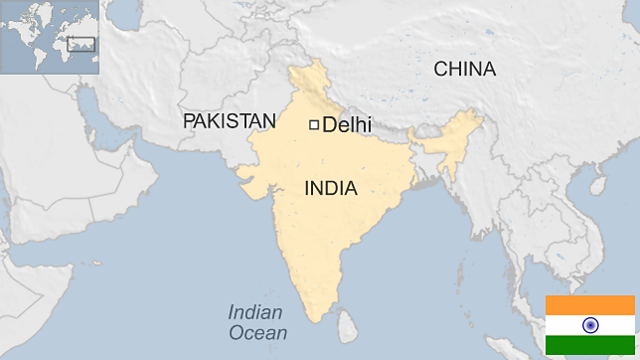Digital Indians: Nandan Nilekani
- Published
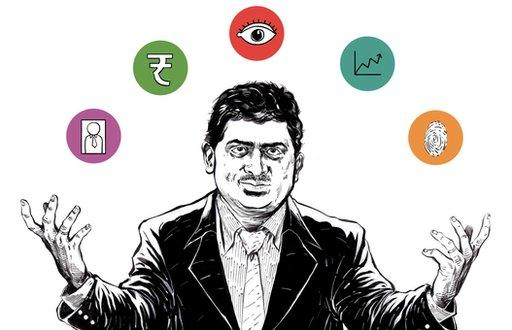
Nandan Nilekani moved from working in business to government (Illustrator: Sumit Kumar)
When Nandan Nilekani began working on providing a unique identification number to half of India's billion-plus people four years ago, he ran into a wall of problems.
The main criticism was that 120bn rupees(£1.72bn; $1.89bn) project was also the world's biggest biometric exercise.
Not surprisingly Mr Nilekani, info-tech whizz turned head of the Unique Identification Authority of India, faced tough questions over access and misuse of personal information, surveillance, profiling, securing of confidential information by the government and threats of budget cuts. A parliamentary panel even trashed the idea, saying it would be "misused".
Four years on, Mr Nilekani - the famous co-founder of Infosys, the $7bn Indian info-tech behemoth - believes he has been able to allay such fears.
Enormous rollout
Since the project began in 2009, some 500 million Indians have enrolled at 25,000 centres across the country to get a 12-digit unique identification number, external - called Aadhaar or foundation. Some 400 million people have been already issued an ID. The goal is to enrol 100 million more people by 2014.
Mr Nilekani says 10 of India's 28 states are already using the ID to transfer government pensions, scholarships, wages for a landmark jobs for work scheme, and subsides for cooking fuel to targeted recipients. Some states are using the number to distribute cheap food to the poor, plugging distribution leakages and checking for corruption.
This, Mr Nilekani believes, is transformative in a country where only 58% of children are registered at birth and 40% of people in villages do not have bank accounts.
"A lot of attention has been made to design the ID so that it doesn't become a massive data collector. It's a simple ID system that protects the residents," Mr Nilekani says.
It's been a long, strange trip for him.
When he became a part of a team to fix governance systems in the city of Bangalore a decade ago, he pointedly avoided talking about info-tech as a means to solve complex public problems.
It was Mr Nilekani's first foray into the "public sphere" and as the famous co-founder of Infosys, he was sheepish about flaunting his credentials.
"I was wary of being labelled a 'computer boy' who saw every problem as something that could be solved by writing a piece of code.
"After all, what do computers and software have to do with clearing garbage or provide soft drinking water?" Mr Nilekani wrote in Imagining India, his well-received 2008 book on how to "drive change" and shape a renewed idea of India.
Nandan Nilekani, co-founder of the Indian technology company Infosys, has quit to lead a government project to provide a unique ID number to a billion Indians
How times change.
Sitting in his office, Mr Nilekani speaks about the need for an ID to change India with a brisk, evangelical flair.
"In the West, IDs are taken for granted. In India, things are different. You have millions of people who have no ID and no acknowledgement of their existence. They can't open a bank account, they can't have a mobile phone connection. It's an identity divide," says Mr Nilekani.
So how does the 58-year-old Bangalore-born info-tech billionaire - worth $1.3bn according to the Forbes rich list, making him one of the wealthiest Indians - work in the government, where the pace of change is usually glacial, and change itself can easily get embroiled in partisan politics?
For one, with its sleepy-looking offices peopled by taciturn bureaucrats and their armies of attendants, the government of India is a world far removed from the gleaming and energetic Infosys campus, Mr Nilekani's former workplace.
No spitting
Mr Nilekani's office is a cosy, functional place with a cramped bookshelf, a big screen TV, a laptop, and papers and magazines strewn around. A blazing blue-flame "fly trapper" on the floor helps to keep the pests away.
A computer-generated paper warning in the men's toilet on the same floor is a sobering reminder of curious challenges. "Do not spit tobacco in wash basins/urine pots", it says.
But, more seriously, says Mr Nilekani, his four years in government has taught him patience and the art of consensus building.
"In the private sector, business takes a decision, you discuss it with your management team, get the approval of the board, go to shareholders, convince your analysts and so on. That's about it," he says,
"In the public sector, it an entirely different ball game - you deal with the government, parliament, bureaucracy, judiciary, activists, journalists. Then there's the federal structure - central government, state governments, local bodies. You negotiate all this and still get something done."
Working with the government and facing flak from opponents made Mr Nilekani also realise the "metric" of success in government is vastly different from that in business.
"In business, you are measured by revenue, cost control, profitability, new products, earnings per share, growth. The language of performance is identical no matter what the product is," he says.
"In the government, what is success?
"Somebody who believes in the ID programme will say I am successful if I can get it done. But somebody who does not believe in it will say no matter what I do I am not successful. The success in government is linked to the ideology of how you see the world."
Starting young
In many ways, that has been the story of Mr Nilekani's life.
When he was 12, his father, a textile mill manager in Bangalore, sent him away to stay with his uncle in the small town of Dharwad. He says he grew up fast, living independently from his parents at an early age. At home, he listened to his father and uncle, both intensely political creatures, sparring on public issues. It was, he says, a lesson in public engagement.
He went to India's top and fiercely competitive engineering school, got on to its quiz team, led the students' group and became, he says, "a well-rounded person, developed lots of social skills, became street smart and learnt to negotiate".
All this, Mr Nilekani believes, helped in his three decades with Infosys. He met global customers from a variety of industries, and constantly studied customers to see how he could "make a difference using technology". At Infosys, he led a group that designed banking software which is used all over the world now.
Digital Indians: Nandan Nilekani
When he left the company in 2009 it had grown 50% and made him infinitely richer, "a genial billionaire", as the New Yorker magazine called him once.
"You know," he says, "I flourished not so much in technology for technology's sake, but in its application and use in solving large, complex problems for public good." That's what, he says, he wants to keep doing after his work with the ID project ends next year.
At work, he jokes that he would not be entirely displeased to be compared with Michael Bloomberg, New York mayor and business magnate. At home, he says, he is reminded of his limitations.
"My wife says I am a very poor electrical engineer," he says with a wry smile. "I can't even change a light bulb."
- Published12 September 2013
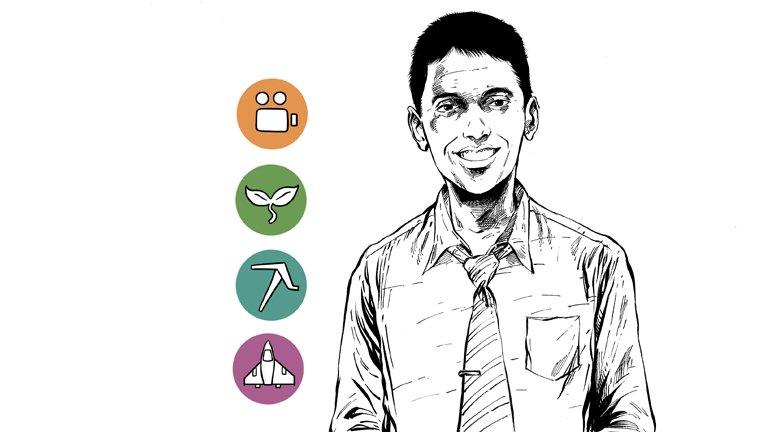
- Published10 September 2013
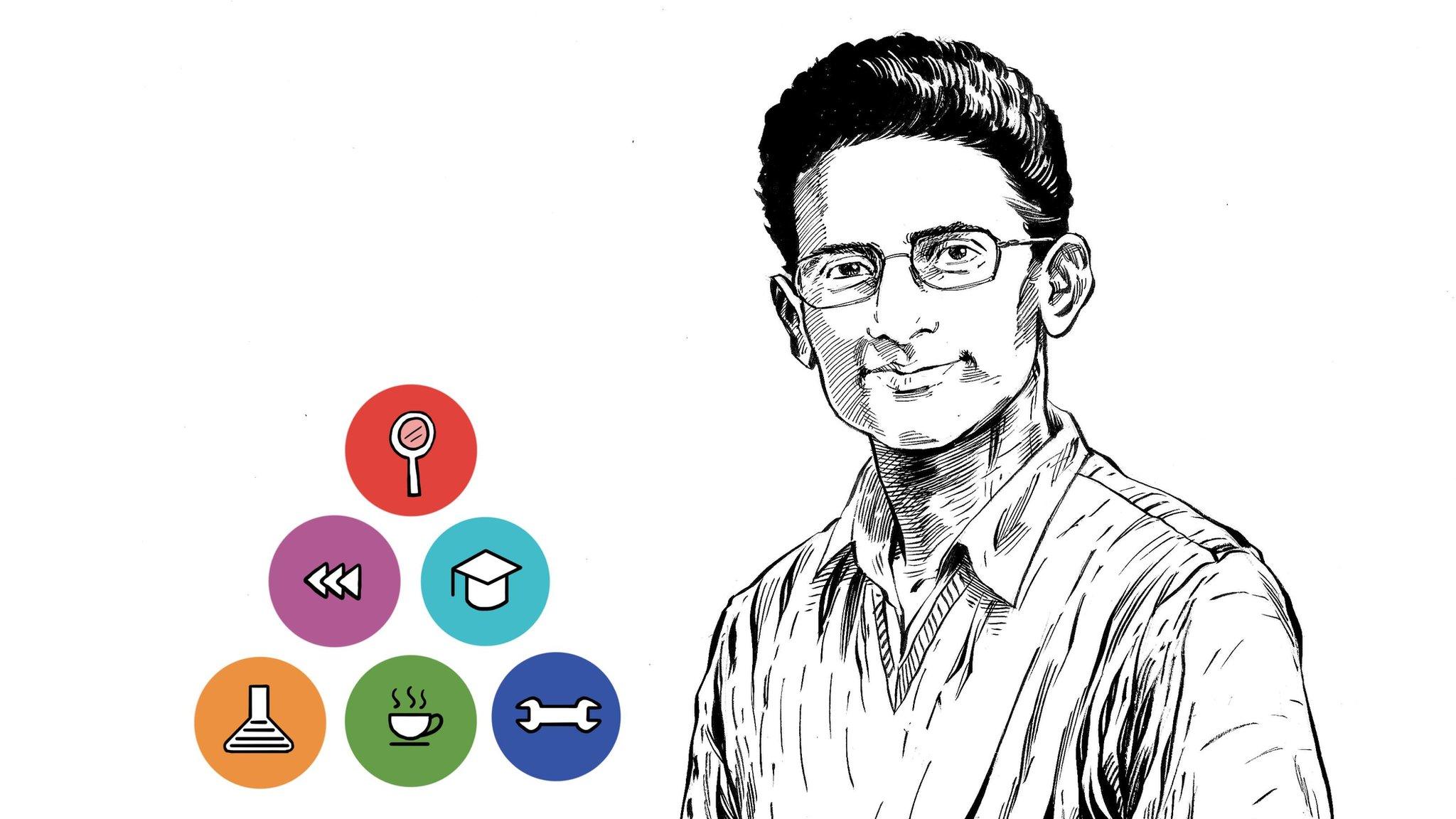
- Published28 May 2012
- Published6 June 2012
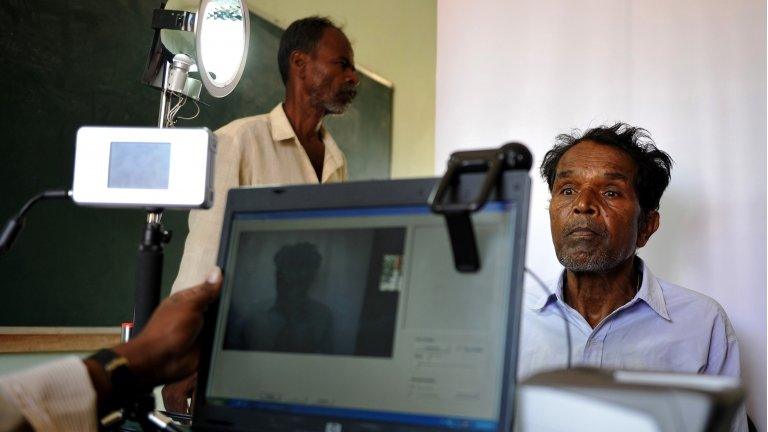
- Published13 February 2012
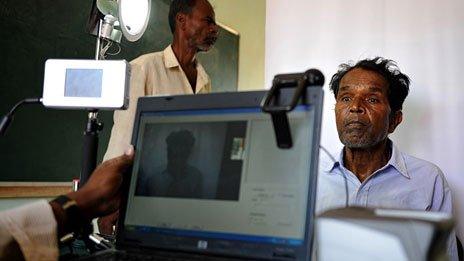
- Published29 September 2010
- Published10 March
